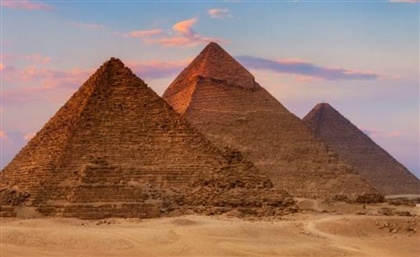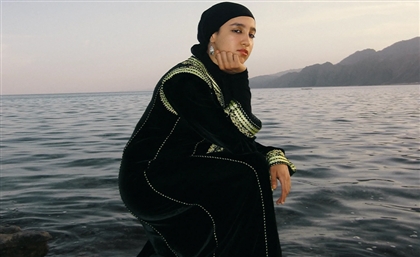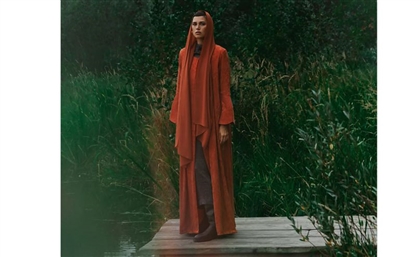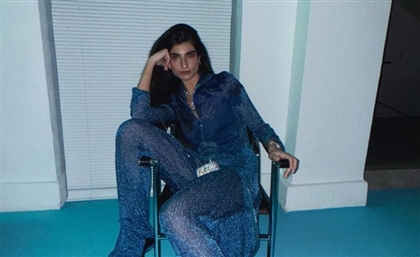Alison in WeiWei-Land
In this CairoScene exclusive, Timmy Mowafi talks to award-winning director Alison Klayman about her cult-phenomenon of a film, Ai WeiWei: Never Sorry, a portrait of China's most infamous artist...
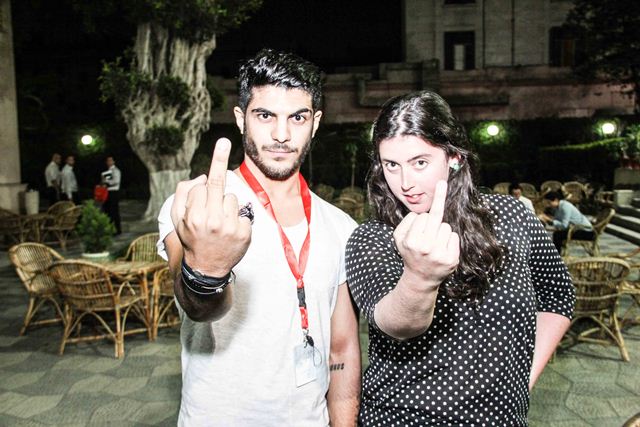
Alison Klayman had just finished what must have been her umpteenth press conference about Ai WeiWei: Never Sorry, which showed as part of D-CAF’s film programme. I was slightly apprehensive to sit down with her, assuming she might be quite tired of talking about the film which she directed, produced, filmed and co-edited for the umptee-first time. This, though, was definitely not the case; it was actually her last presser after travelling the world, spreading the word about her incredible documentary that follows the fantastical life of China’s internationally renowned and controversial conceptual artist, Ai WeiWei, and his struggle for free speech and government transparency in a country still riddled with Communist inclinations. The film has already won prestigious awards like the Special Jury Prize for Spirit of Defiance at Sundance in 2012, has become a cult phenomenon around the globe and led droves of guests to stand up at the panel discussion to tell Klayman just how much the film meant to them.
The ever-bubbly Klayman still talks about the man and the film with the same excitement and curiosity that attracted her to start this cinéma vérité journey in the first place: “It was kind of backwards. I felt I already knew him before I started filming. My friend was living in China, involved in a project, organising tens of thousands of Ai WeiWei’s photographs that were taken in New York from 1983 to 1993 that were never developed. That was my entry point to Ai WeiWei. As an aspiring filmmaker, she suggested I come make a film about him. I didn’t need much convincing. We signed a paper and he was like, “You’ll make a video, you can keep your footage and we won’t pay you.” That was the agreement,” remembers Klayman.
For a while, Klayman blended into the background as Ai WeiWei went on with his daily, extraordinary life. Eventually, though, he began to take a liking to her. “I think he loved the open-mindedness and naivety of my questions. There is something about being new somewhere and being new to a person that puts a different perspective into place. Like when I asked him why he’s so fearless, and he said that he’s actually very fearful,” she says. That open-mindedness sets the tone for the whole film, and what struck me personally about it when I watched it was how it managed to move me without trying to. It doesn’t try to push anything down your throat. Instead, you feel the creative struggle and what artists must go through in that kind of environment without the film ever telling you. This is thanks, of course, to Klayman’s simple, almost child-like methods. “I never studied film theory,” she admits. “I think he shaped the film by the fact that the movie is purely what happened to him and I couldn’t contrive anything. There are a lot of documentaries these days that mix narrative and opinion in there. Like Michael Moore, for instance. I didn’t go into making my documentary with any specific intentions. There are a lot of movies you could make about Ai WeiWei and I really feel like this one is a reflection of my approach and attitude and it’s more powerful because of that.“
After a month of filming, she put together a 20 minute video which Ai Wei Wi loved and it took off from there. She shadowed him day and night as he fought his battle against censorship, from documenting the government’s cover up of the 2008 earthquake which saw thousand of school children pass away in Sichuan, to his (sometimes physical) altercations with the Chinese police. “There were times when I was filming and I’d think, ‘Oh, this is a really good scene! This is going to be in the movie,’ but then you realise that these are very serious events in this guy’s life that this film has to cover. It’s not just a character portrait anymore but a movie with drama and you have to do it justice because it’s what’s happening now. That’s how I felt when he got hit in the head by a police officer in 2009 and when he got detained.”

Klayman slowly went from objective documenter to friend and activist, when she found herself a spokesperson for the man when he was imprisoned in 2011. “It was hard to separate myself from the story, I became almost an advocate in the sense that I was speaking about Ai WeiWei to the press and agreed to do a lot of interviews when there were very few people who were brave enough to do that. It stopped becoming about promoting a movie or my credentials as a film maker but about all these things happening to someone I really cared about,” she recalls. “I could not have been more relieved the day he was released, obviously for his own safety but also, you know, in a selfish way, too.”
Ai WeiWei has been banned from travelling and from Chinese Twitter. I suggest to Klayman that he go under the pseudonym of DJ WeiWei and open up a MySpace to which she responds that he’s actually releasing a Heavy Metal album very soon. I thought she was joking until I recently saw it mentioned in Time Magazine’s 100 Most Influential People issue in which he featured. It seems a perfectly fitting genre for the man whose whole attitude is ‘Fuck you, I’ll do and say as I like.’ “One of the biggest lessons I learned from him was the importance of courage in the way that all censorship starts with self-censorship. Maybe you can’t take down a whole structure of censorship but you have it within your power to take that first step. Nobody can stop what’s between your brain and your mouth,” says Klayman.

Here in Egypt, following the revolution and with a religious force in charge, we’re currently at the epicentre of a similar battle for freedom of speech and expression. “My interaction with Egyptians abroad has always incredibly memorable and powerful. It is absolutely because of the resonance of the last few years in Egypt and the role of young people, social media, and art. It seems to me like the young Egyptian audience often feels like this is very, very relevant,” Klayman agrees. She has also been showing the film in other areas of the Middle East where censorship is even stricter. “You’d think they wouldn’t allow a movie about an artist using the social media in order to conspire, right? But the point is people don’t make those connections immediately. It’s sort of like a Trojan horse in that sense where someone might think that if it’s a region that doesn’t have a particular sensitivity about China then they’ll think, ‘Oh good! A movie about a Chinese artist!’” she admits.

With the press tour for Ai WeiWei: Never Sorry now over, Klayman has time to build on the success of her film to magnify other politically significant issues that appeal to her. “I’m interested in doing a film in the Middle East. All I can definitely say is that over the last few days, I’ve been plotting my return! I don’t think of myself as an activist film maker, but I know my world view is that everything is political and I can’t imagine making something that doesn’t have that kind of significance because that’s what ends up drawing me in. It is art and it is politics but which direction each project will take might be different,” she says. I, for one, am waiting for Alison Klayman’s next project with baited breath and, in the spirit of Ai WeiWei, my middle finger firmly up.
Keep up-to-date with Alison Klayman AND Ai WeiWei on Twitter and follow @AliKlay and @AiWW
- Previous Article I Got Banged!
- Next Article Nomades Land
Trending This Week
-
Apr 14, 2025






